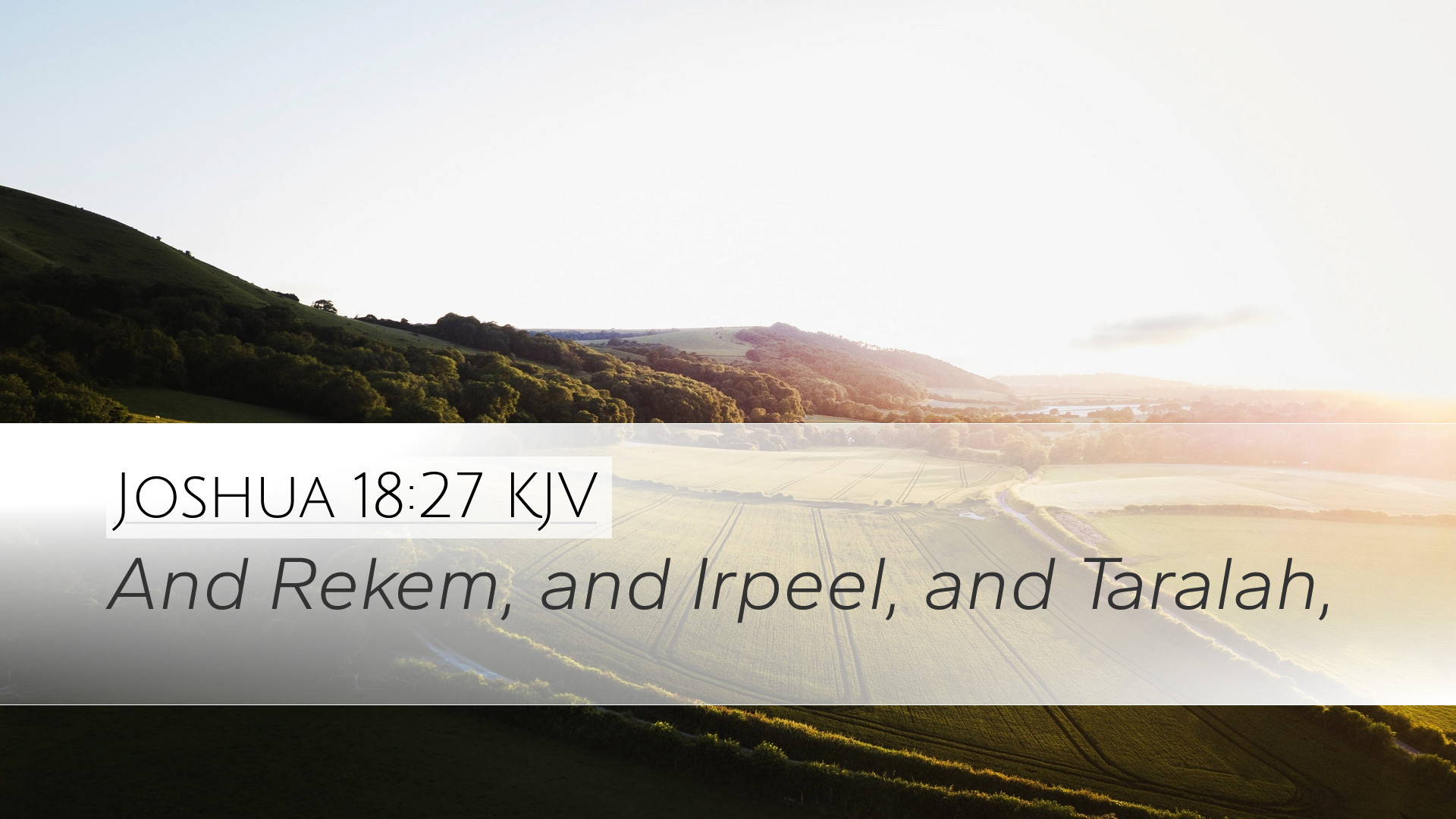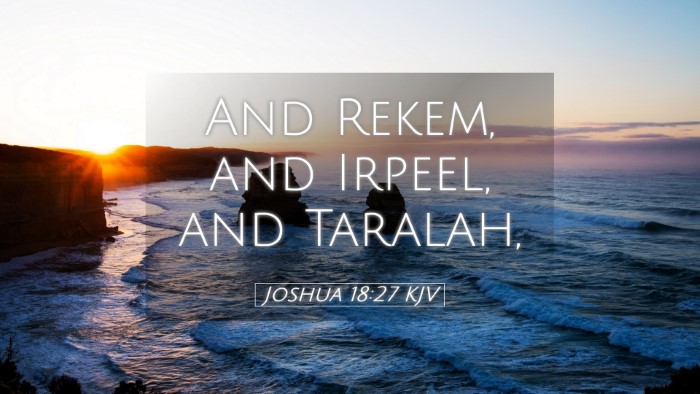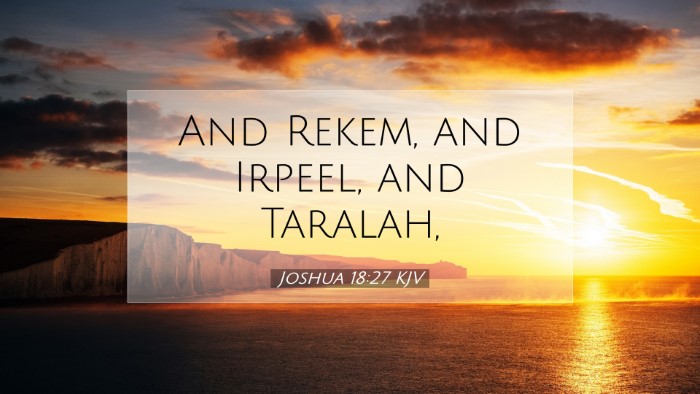Commentary on Joshua 18:27
Joshua 18:27 states:
"And Zelah, Eleph, and the Jebusite, which is Jerusalem, and Gibeath, and Kirjath: fourteen cities with their villages. This is the inheritance of the children of Benjamin according to their families."
Introduction
This verse marks the conclusion of the allotment of territory to the tribe of Benjamin, highlighting not only the physical demarcation of their inheritance but also the spiritual implications of their inheritance as part of the Promised Land. The mention of specific cities serves to reflect God's providential guidance in the distribution of land.
Context and Thematic Overview
The Book of Joshua details the entrance of the Israelites into Canaan and the subsequent division of the land among the tribes. As the Israelites continue to establish themselves in their new homeland, understanding the significance of each tribe's allotment becomes crucial for interpreting God's promises and His faithfulness to Israel.
Importance of the Tribes’ Allotments
The division of Canaan reflects not only a redistribution of land but also the fulfillment of the covenant made with Abraham. Each tribe's inheritance represents a physical possession of God’s promises:
- Historical Context: The land distribution is deeply rooted in the history of Israel, portraying God’s faithfulness from Abraham to Moses and beyond.
- Symbol of Providence: The cities mentioned reflect God’s sovereignty in guiding the Israelites to their designated properties.
- Tribal Identity: The inheritance reinforces tribal identities among the Israelites, showcasing their distinct roles in the community.
Analysis of Key Terms
Several terms and places mentioned in the verse have significant implications:
Zelah and Eleph
These towns, though less known, demonstrate the lesser-known parts of God’s provision for His people. Matthew Henry comments on how even less prominent tribes still held valuable land.
Jebusite and Jerusalem
The mention of the Jebusite city highlights the already existing urban centers and cultures, which indicates God’s plan for the eventual intermingling of His chosen people with those already established. Adam Clarke notes that Jerusalem becoming a city of the Jebusites indicates a recurring theme of both conflict and coexistence between God’s people and others.
Gibeath and Kirjath
These cities, traditionally significant, symbolize cultural and religious centers. Their inclusion indicates the importance of maintaining worship centers and community hubs that align with God's covenantal presence. Albert Barnes emphasizes that maintaining purity in worship amid these culturally rich cities was paramount.
Spiritual Implications
The verse also carries deep spiritual implications for modern believers:
- Faithfulness of God: Just as He provided for the tribe of Benjamin, so He is faithful to provide for His followers today.
- The Unity of the Body: Each “city” can be seen metaphorically, representing the various parts of the church, which although distinct, are unified in Christ.
- Call for Holiness: The mention of cities underscores the importance of establishing holy living and places of worship amidst a secular surrounding.
Conclusion
In conclusion, Joshua 18:27 is more than a list of cities for the tribe of Benjamin; it is a testament to God's eternal faithfulness and a reminder of our calling. The passage encourages believers to reflect on their spiritual inheritance and live in a manner worthy of their calling as children of God.
Prayerful Reflection
As pastors, students, theologians, and scholars engage with this text, may they seek God’s guidance to understand their own spiritual inheritance and the vital importance of their communities within the body of Christ. Amen.


